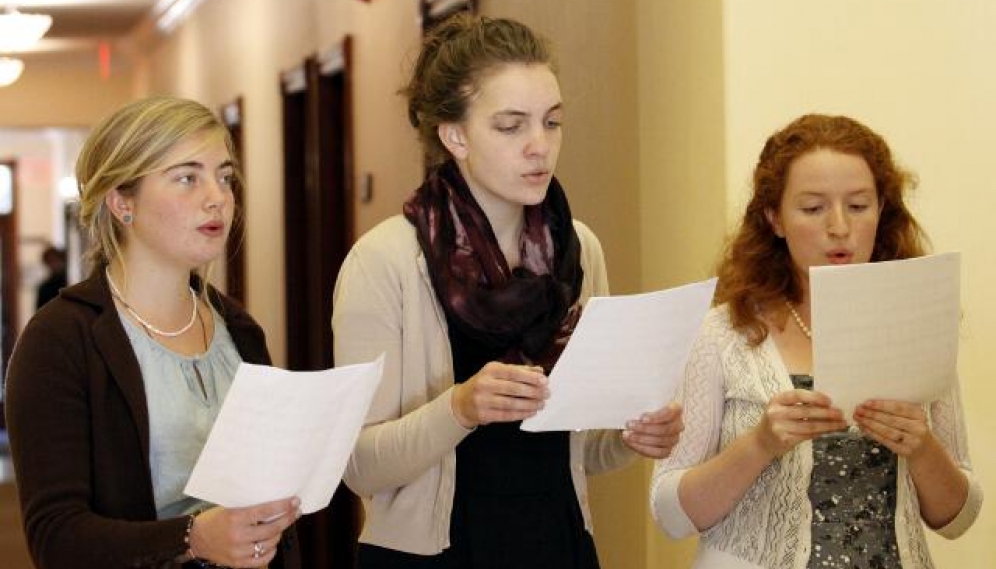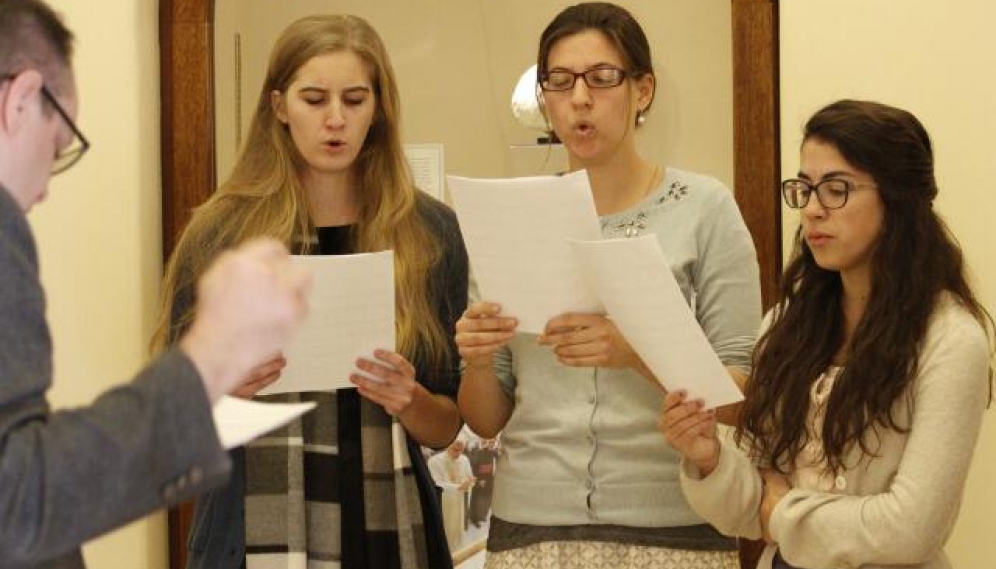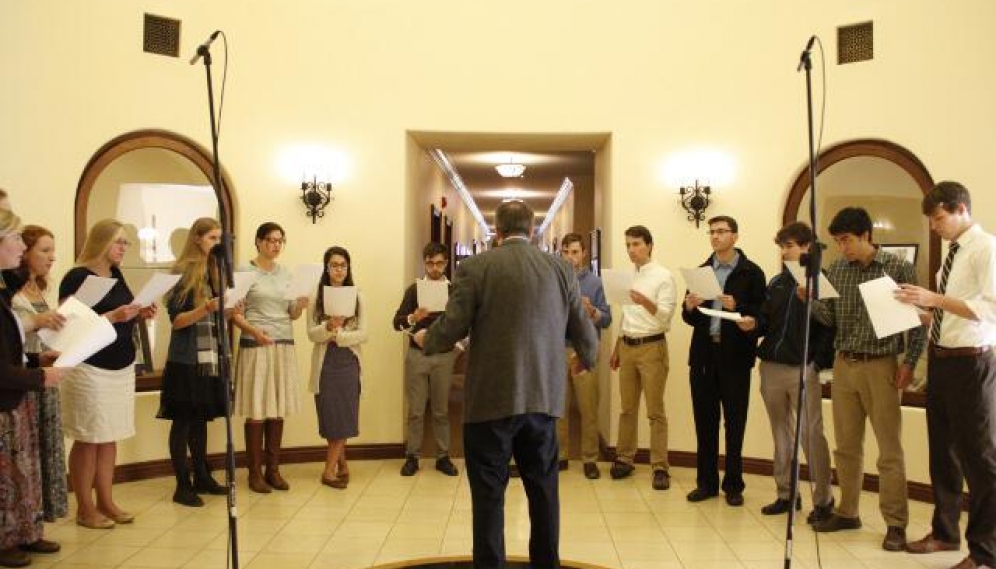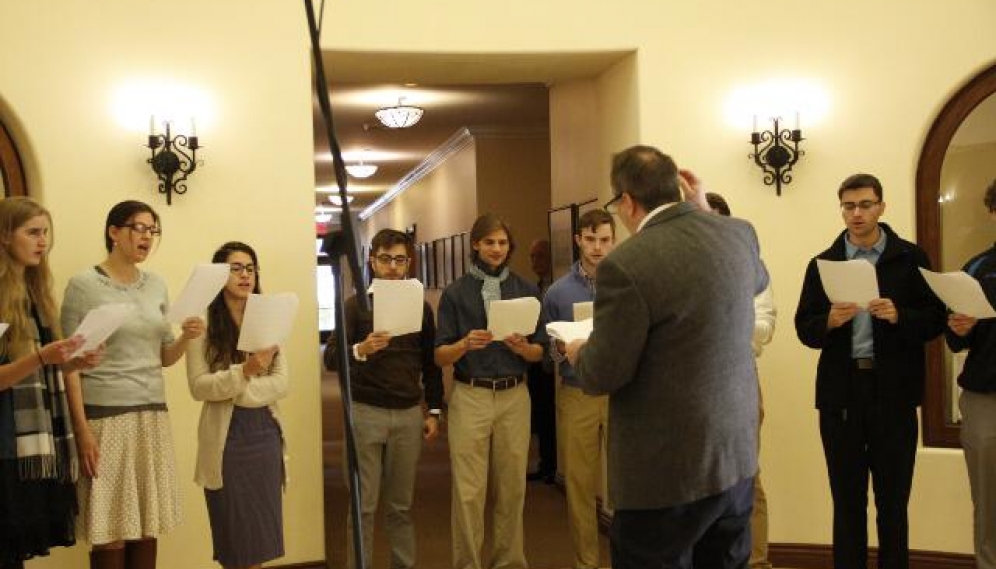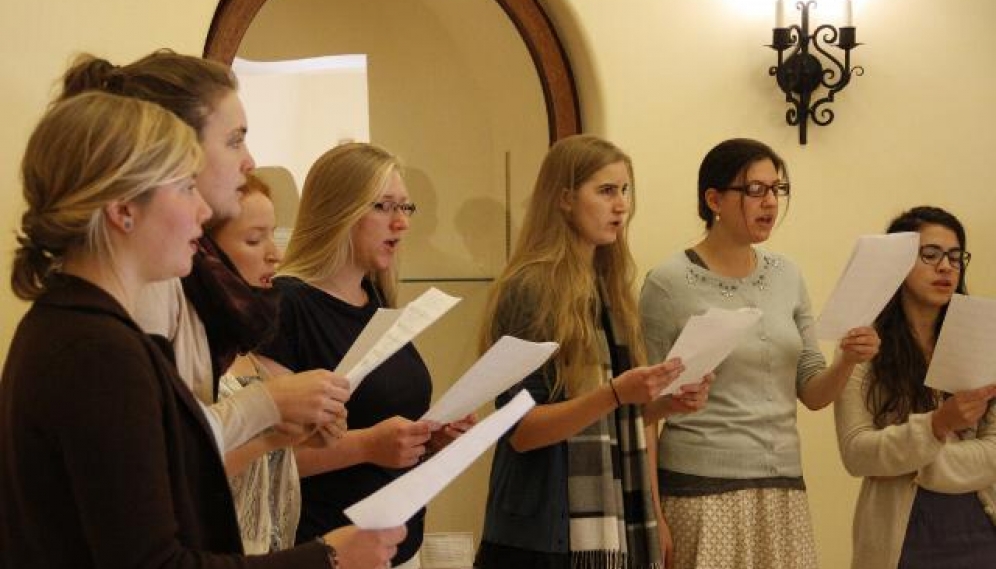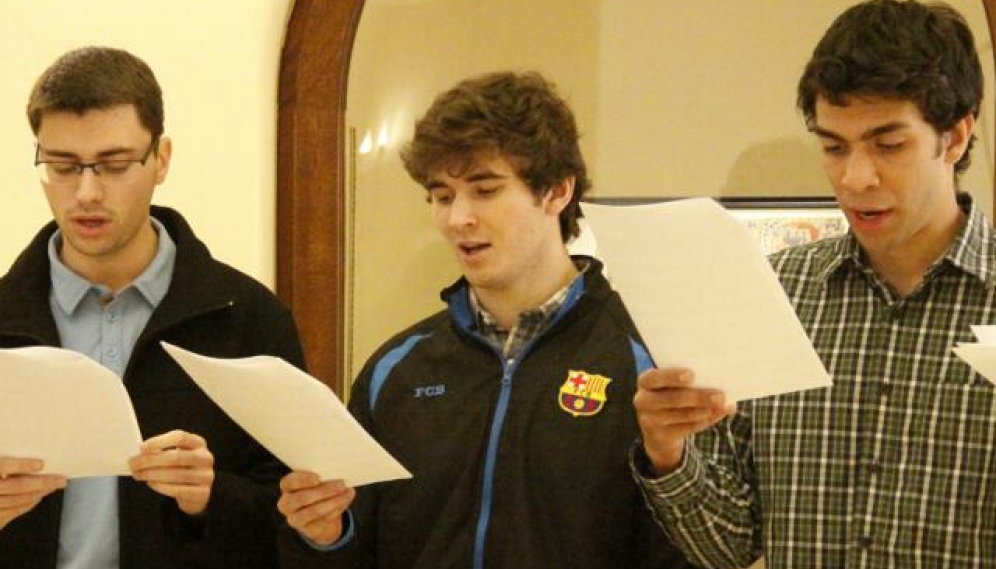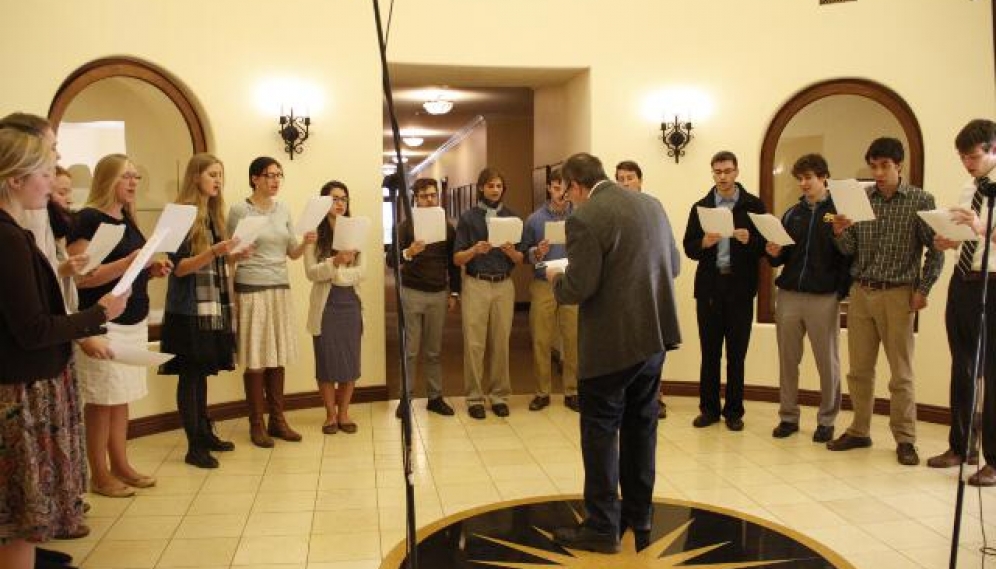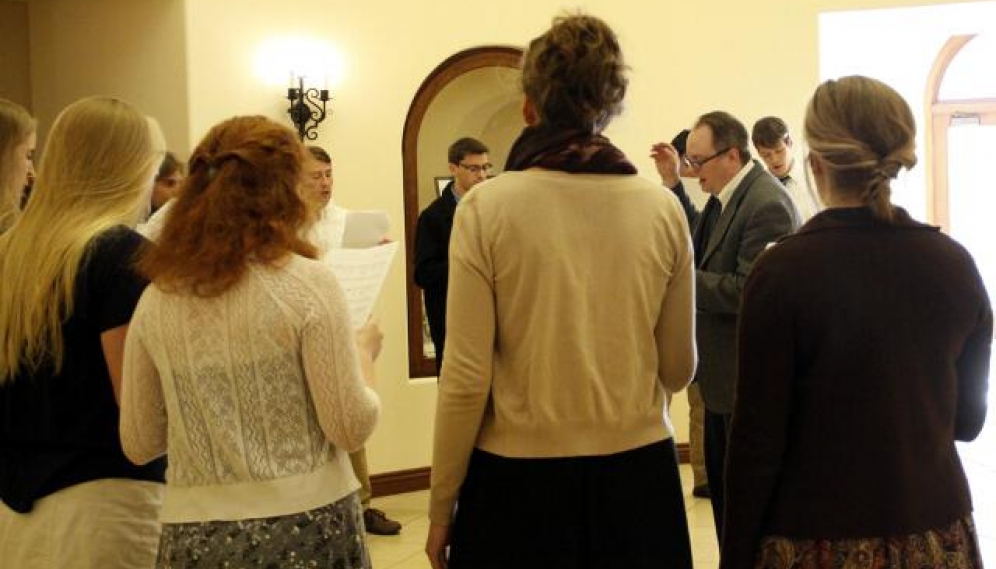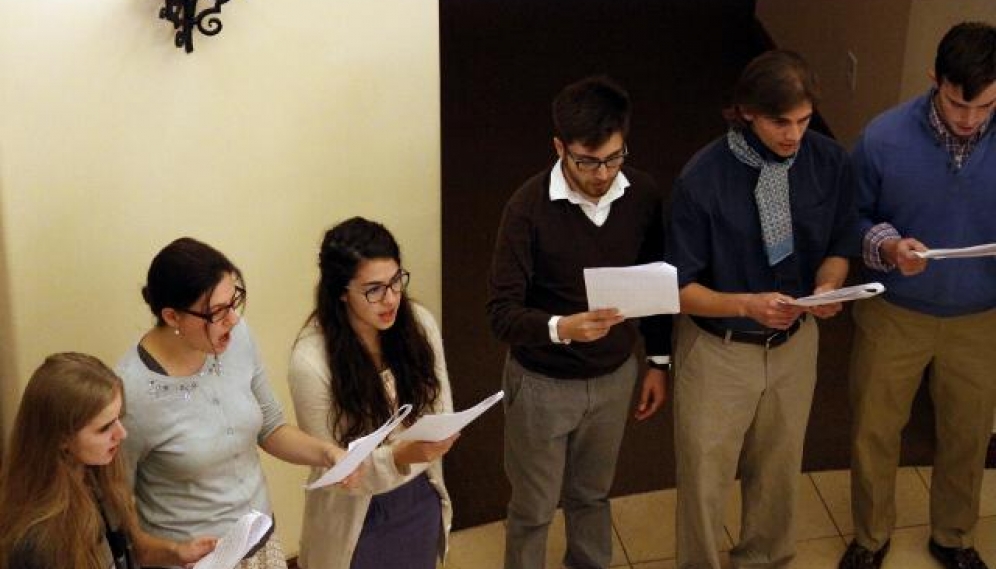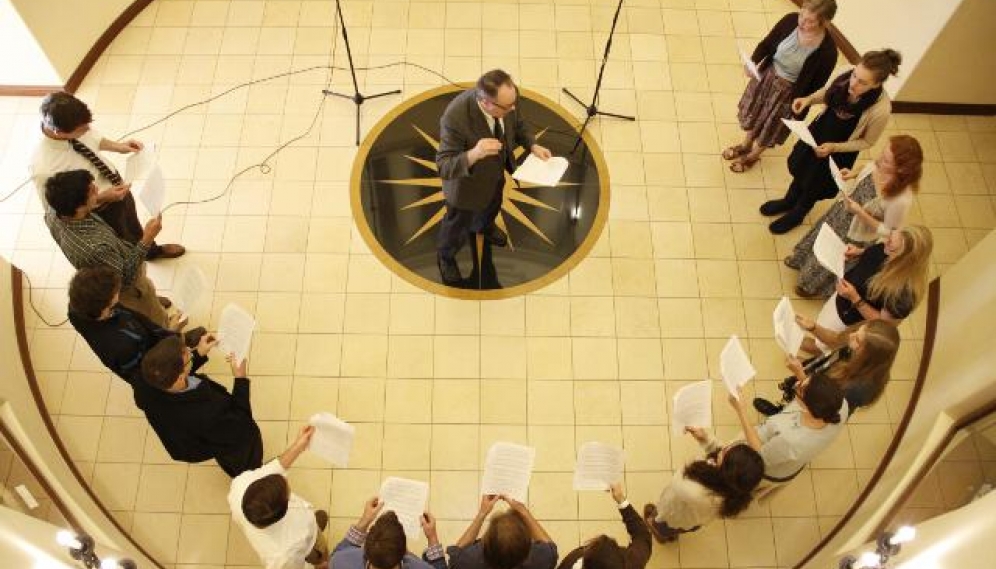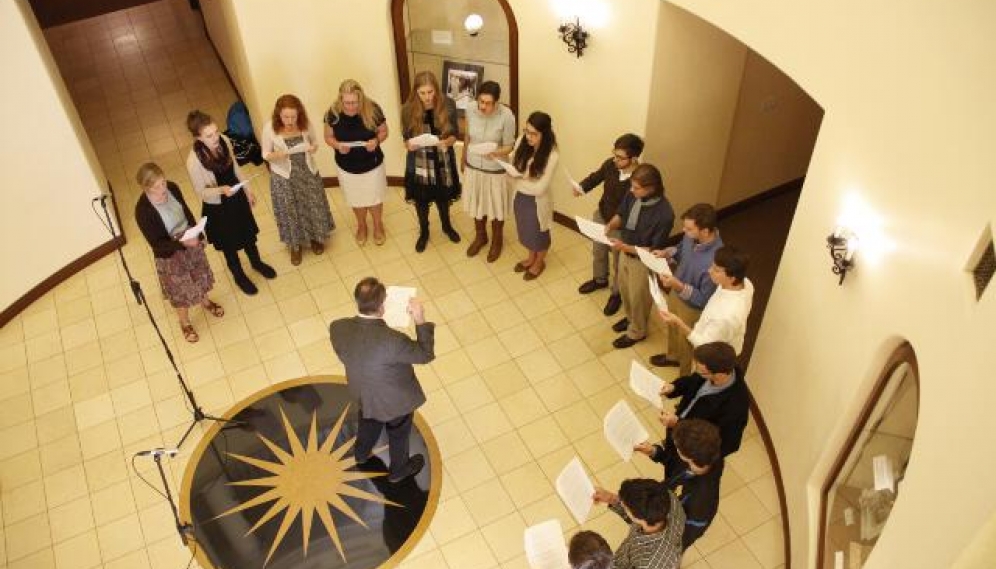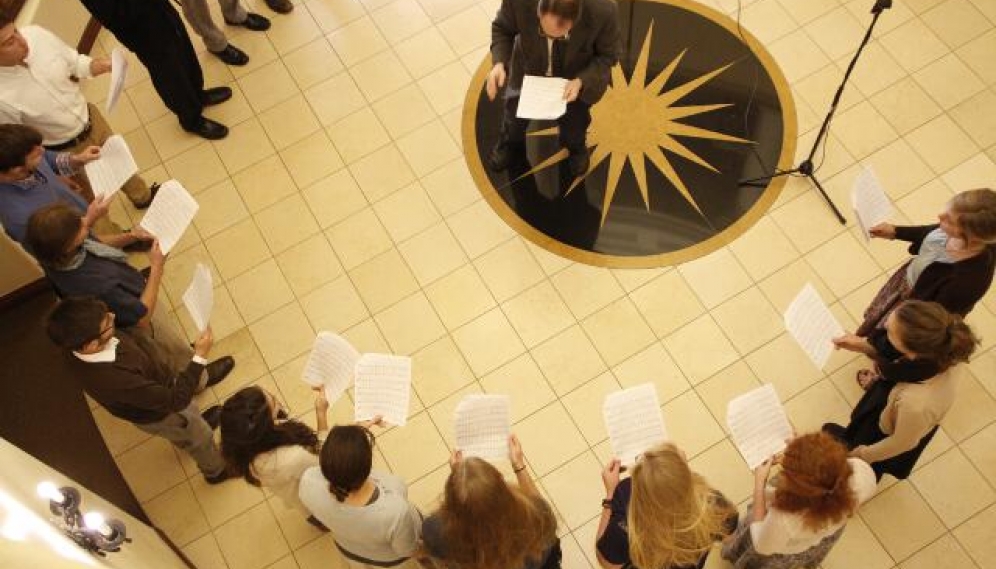- Home
-
About
 Fidelity & Excellence
Fidelity & ExcellenceThomas Aquinas College is unique among American colleges and universities, offering a faithfully Catholic education comprised entirely of the Great Books and classroom discussions.
-
A Liberating Education
 Truth Matters
Truth MattersTruth, and nothing less, sets men free; and because truth is both natural and supernatural, the College’s curriculum aims at both natural and divine wisdom.
-
A Catholic Life
 Under the Light of Faith
Under the Light of FaithThe intellectual tradition and moral teachings of the Catholic Church infuse the whole life of Thomas Aquinas College, illuminating the curriculum and the community alike.
-
Admission & Aid
 Is TAC Right for You?
Is TAC Right for You?Do you enjoy grappling with complex questions? Are you willing to engage in discussions about difficult concepts, with the truth as your ultimate goal?
-
Students & Parents
 Mind, Body & Spirit
Mind, Body & SpiritThere is always something to do at TAC — something worthwhile, something fulfilling, and something geared toward ever-greater spiritual and intellectual growth.
-
Alumni & Careers
 What Can You Do with a Liberal Education?
What Can You Do with a Liberal Education?Nothing speaks more to the versatility of the College’s academic program than the good that our alumni are doing throughout the Church and the world.
- Search
- Giving
Audio & Photos: Music Class Sings in College Rotunda
In the waning days of the fall semester before final examinations, 16 Thomas Aquinas College juniors gathered in the rotunda of St. Thomas Hall Wednesday to sing four hymns. The brief performance marked the latest chapter in a young but increasingly anticipated campus tradition.
This was not a performance of the Thomas Aquinas College Choir. Indeed, many of the students have little or no choral experience. As members of the College’s junior class, the singers are students in the music tutorial that is required in the third year of the College’s integrated academic program. Students in the tutorial study music’s inner mathematical structure and learn how to read music.
The emphasis on singing, with the public performance at the end of the semester, is a relatively new phenomenon, the inspiration of Dr. Phillip Wodzinski, a tutor on the College’s teaching faculty. After his first semester teaching the tutorial in the fall 2010, Dr. Wodzinski was eager to showcase his students’ achievements; so he arranged for the performance in the College’s faculty and administration building — surprising and delighting passersby.
Buoyed by this success he has arranged for subsequent performances at the end of every semester in which he has taught the music tutorial. “This performance,” says Dr. Wodzinski, “is a way for the students to close off a semester of hard work that has combined some difficult theoretical reflection on the nature of music with some effort to analyze and perform some basic choral music.”
Below are audio clips of the juniors’ five end-of-the-year hymns, accompanied by Dr. Wodzinski’s description of each one. (Note: To download a clip, click on the down arrow beneath the audio player.)
1. First is “O quickly come, dread Judge of all,” by Lawrence Tuttiett (1825-97). As one might expect from the title, and from the words of the hymn, the music will not be sunshine and daisies. The melody, designated as Vater Unser (the opening words of its original setting), is taken from Schumann’s 1539 songbook, Geistliche Lieder. The dark and urgent music is chiefly in c minor but makes use of E-flat major, B-flat major, and g minor as well.
Lyrics:
O quickly come, dread Judge of all; for, awful though Thine advent be,
All shadows from the truth will fall, and falsehood die, in sight of Thee:
O quickly come; for doubt and fear like clouds dissolve when Thou art near.
O quickly come, true Life of all; for death is mighty all around;
On ev’ry home his shadows fall, on ev’ry heart his mark is found:
O quickly come; for grief and pain can never cloud Thy glorious reign.
O quickly come, sure Light of all, for gloomy night broods o’er our way,
And weakly souls begin to fall with weary watching for the day:
O quickly come; for round Thy throne no eye is blind, no night is known.
2. Second is the equally exalted but less terrific “King of glory, King of peace,” by Anglican priest-poet George Herbert (1598-1632), which employs many striking choices of word and phrase in attempting to communicate his love of God. “Gwalchmai,” by Joseph David Jones (1827-70) and named after his hometown in Wales, is an uplifting tune in G major that makes some use of D major, as well as modulating briefly to G-major’s relative, e-minor.
Lyrics:
King of glory, King of peace, I will love Thee;
And that love may never cease, I will move Thee.
Thou hast granted my request, Thou hast heard me;
Thou didst note my working breast, Thou hast spared me.
Wherefore with my utmost art, I will sing Thee;
And the cream of all my heart, I will bring Thee.
Though my sins against me cried, Thou didst clear me;
And alone, when they replied, Thou didst hear me.
Sev’n whole days, not one in sev’n, I will praise Thee;
In my heart, though not in heav’n, I can raise Thee.
Small it is, in this poor sort, to enroll Thee:
E’en eternity’s too short to extol Thee.
3. Third, we return to darker-hued music, though tinged now with quiet reverence rather than with dread. Here, set in Claude Goudimel’s (1514-72) tune for Psalm 86 from an old Genevan hymnal and resuscitated by Vaughan Williams, is the hymn, “Virgin-born, we bow before Thee,” by Reginald Heber (1783-1826), Anglican bishop of Calcutta. Although a hymn of adoration to Christ (written for the feast of the Presentation), the text for this very reason cannot resist praising His mother; it is strikingly Marian. The music moves between F major, B-flat major, their relative minors, and even the Dorian mode of F, and the relation of tonic, key, and mode is striking though in rather subtle ways.
Lyrics:
Virgin-born, we bow before Thee; blessed was the womb that bore Thee;
Mary, mother meek and mild, blessed was she in her Child.
Blessed was the breast that fed Thee; blessed was the hand that led Thee;
Blessed was the parent’s eye that watched Thy slumb’ring infancy.
Blessed she by all creation, who brought forth the world’s salvation,
And blessed they, forever blest, who love Thee most and serve Thee best.
Virgin-born, we bow before Thee; blessed was the womb that bore Thee;
Mary, mother meek and mild, blessed was she in her Child.
4. Fourth and last is “He who would valiant be,” a poem by John Bunyan (1628-88), of Pilgrim’s Progress fame, adapted by English hymnal editor Percy Dearmer. The music, a folk tune transcribed, edited, harmonized, and labeled as “Monks Gate” (the town where it was discovered) by Ralph Vaughan Williams, is a rousing composition with some slightly tricky rhythms.
Lyrics:
He who would valiant be ‘gainst all disaster,
Let him in constancy follow the Master.
There’s no discouragement shall make him once relent
His first avowed intent to be a pilgrim.
Who so beset him round with dismal stories
Do but themselves confound; his strength the more is.
No foes shall stay his might, though he with giants fight;
He will make good his right to be a pilgrim.
Since, Lord, thou dost defend us with Thy Spirit,
We know we at the end shall life inherit.
Then fancies flee away, I’ll fear not what men say;
I’ll labour night and day to be a pilgrim.



